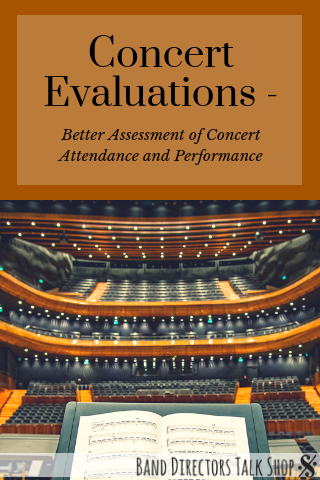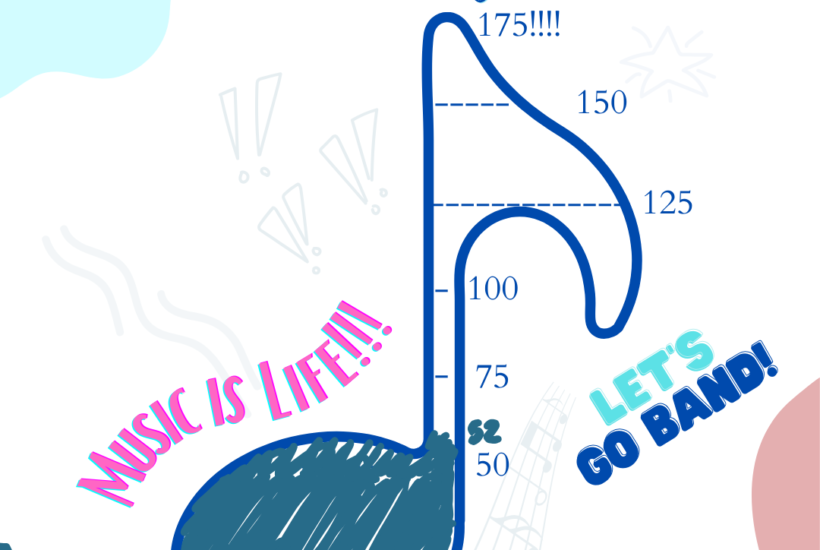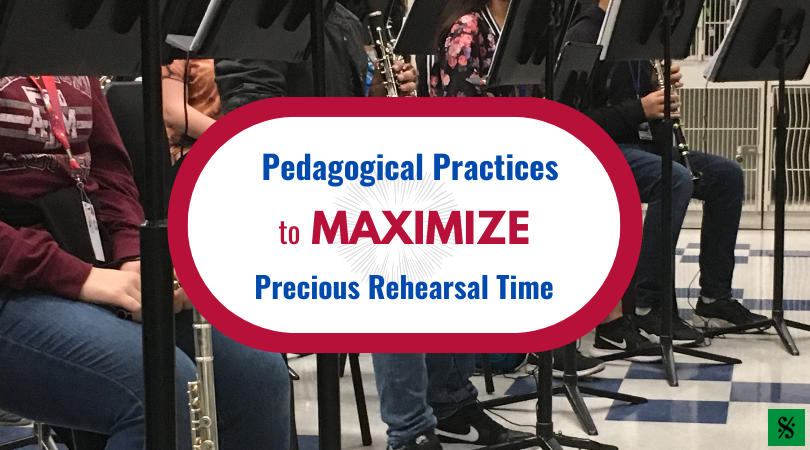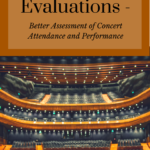As trends in education change, so do expectations. The biggest, and for some the trickiest, expectation is for teachers to completely move away from “participation grades”. If participation grades are not discouraged (or banned) in your district, it is likely they will be soon.

Administrators can’t have a teacher’s back if their grades are based on “Attendance = A”. In this data-driven, show-us-your-test-scores, letter-graded-schools time that we are currently in, no teacher who gives “participation grades” will truly be taken seriously for much longer. Parents, principals and central office administrators expect to see grades based on assessment of individual student mastery. And, having been in systems that have required that for nearly twenty years, I believe that mastery based grading it is what is best for students and teachers.
This is, most of the time, very easy in music. We give small and large individual assessments constantly. Chairs tests, down the row checks-for-understanding (we lovingly call them CFU’s in my band room) and section rehearsals all give us unlimited opportunities for assessing mastery. But our biggest mastery grade of all…the Concert. How on earth do you give an individualized mastery grade for a concert?
I don’t have the perfect answer for that, but I do have something better than “A for Attended”.
Concert Self-Evaluation
I continue to adjust this and it looks very different now from even two years ago as I find more creative ways to incorporate our state expectations (we call them TEKS in Texas) and opportunities for the students to reflect on their learning. But, there are always two main sections to the evaluation. (Download a sample Concert Evaluation here – Concert Evaluation.)
Self-Rating
In the first section, the students give themselves a rating based on their perception of how well they met the standard/expectation. The areas that I find are very important for my students include:
- a statement about uniform/dress code
- a statement about stage, audience and hallway etiquette
- a statement about body and instrument carriage fundamentals
- several statements that involve the musical standards we have been addressing in class on their music (it can include notes and rhythms for the youngest students, but for our performing bands it will cover style, phrasing, breathing, etc.)
This section will usually add up to 80 of the 100 points. Keeping in mind that students vary in their awareness and level of self-criticism, I always have the right to adjust a student’s self-scores up.
There is also a column for me to add my own score. This is useful for those students who are less critical than they should be. An example of this would be from our first concert of the year. I had pictures, taken kindly by our yearbook teacher, of students who were watching from the audience while I was conducting another group. I was able to use those photos to help better grade the audience etiquette parts. I was also able to show the pictures in class for a rousing discussion on what they observed in the pictures.
Short Answer Reflection
The last twenty points come in the form of two short answer questions asking the students to reflect on specific aspects of the performance. I change these from concert to concert and make them reflect what we have been focused on in rehearsals throughout the process. This section was actually inspired by the parent of a student who was severely self-critical. She felt having only the first section was not fair because her son would always get a lower score than his less honest/critical counterparts.
These two short answers must be in complete sentences and thoroughly answer the questions. I was shocked the first few times I did these to see how much difficulty students have answering anything with a complete sentence. I often got one-word answers or things that resembled a poorly thought out text message. I had to work with my students to be able to get them writing simple sentences. But, being that we complete these the day after the concert, those five minutes are well spent and I can count them toward my “making connections with their other subjects”.
Download a sample Concert Evaluation here – Concert Evaluation.
Ways to Make Concert Evaluations Most Effective
I have found that these not only help assess levels of mastery, but also encourage the students to demonstrate their best efforts on concert night. Students will always want to play well during their time on stage, but in my experience, it was in the details outside of the music, that they often lost focus. The truth is, concerts are exciting and excited teenagers don’t always think as critically as we would like. Ways that we help set them up for success:
- Read the Concert Evaluation to them the day before the concert. Bring attention to the parts about audience, hallway and stage etiquette as well as uniform. Reading these can prevent the hour-long teacher nagging and give you some rehearsal time back.
- Give them time in class to complete the sheet (unless it is the top group and they have a new performance on new music in two weeks…this was my entire fall semester…those babies had to complete it on their own time.)
- Go over the short answer questions before they start and remind them how to create a quality short answer. I have to remind them every single time that I should be able to read the answer and know exactly what the question was without looking. And then there’s the capitalization and punctuation. Their reading teachers can thank me later.
Excluding students with special situations, most students can complete this in about 10 minutes. This means if you, like I, always try to let them hear or see their performance, there is plenty of time for both things and maybe even a few minutes to get a head start on some new music (even in a 42-minute class).
If you haven’t started thinking about grading students based on mastery rather than participation, I encourage you to give it a try. It’s amazing how many students internalize participation grades as “how much they are liked by a teacher”. This only hurts students as they move on to upper grade levels and on to college with teachers that only grade mastery. If I can teach my students to see grades as something they earn rather than something I give them, they will have an edge in the future!
(As with many ideas band directors share, I cannot take credit for this idea. A very creative young orchestra teacher I used to work with had developed this for her own students and I stole it as quickly as she showed it to me.)
Annette Mitchell is an active educator and clinician, who also likes to dabble in music education research. She is in her 17th year of teaching middle school band all 17 years of her career have been in Low SES schools. When she is not teaching fundamentals and encouraging students to reach beyond their own expectations, she is blessed work at her primary full-time job of being a wife and mommy to a toddler.
Related Reading:
Working Within District Initiatives Not Against
Improving Section Rehearsal & Concert Attendance at a Title One School
Performance Day
If you would like to receive our weekly newsletter, sign up here.
Don’t forget to like us on Facebook too!
Learn. Share. Inspire.
BandDirectorsTalkShop.com






Leave a Reply
You must be logged in to post a comment.